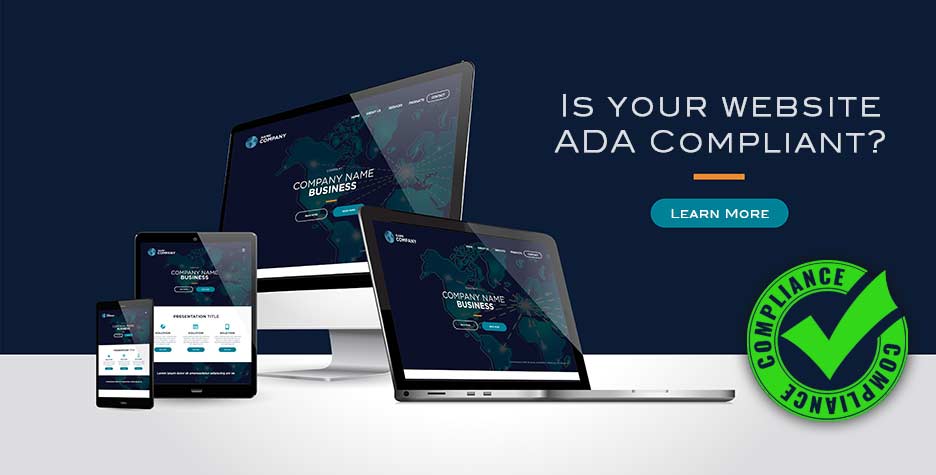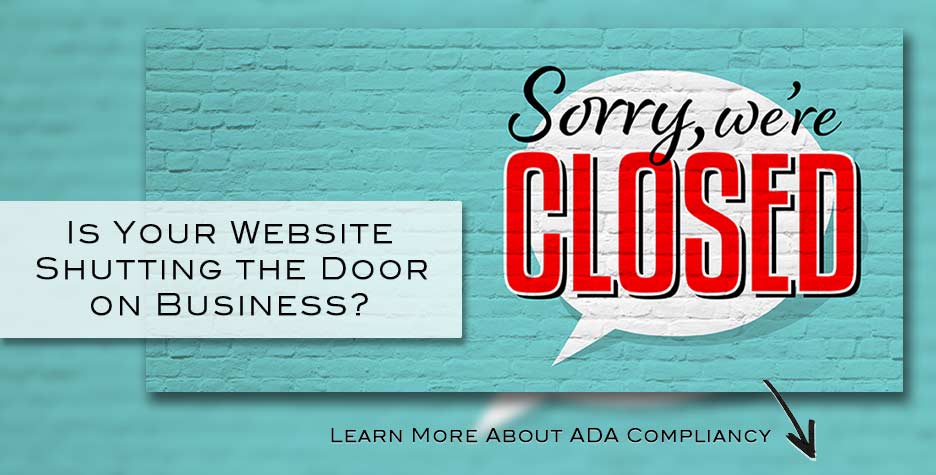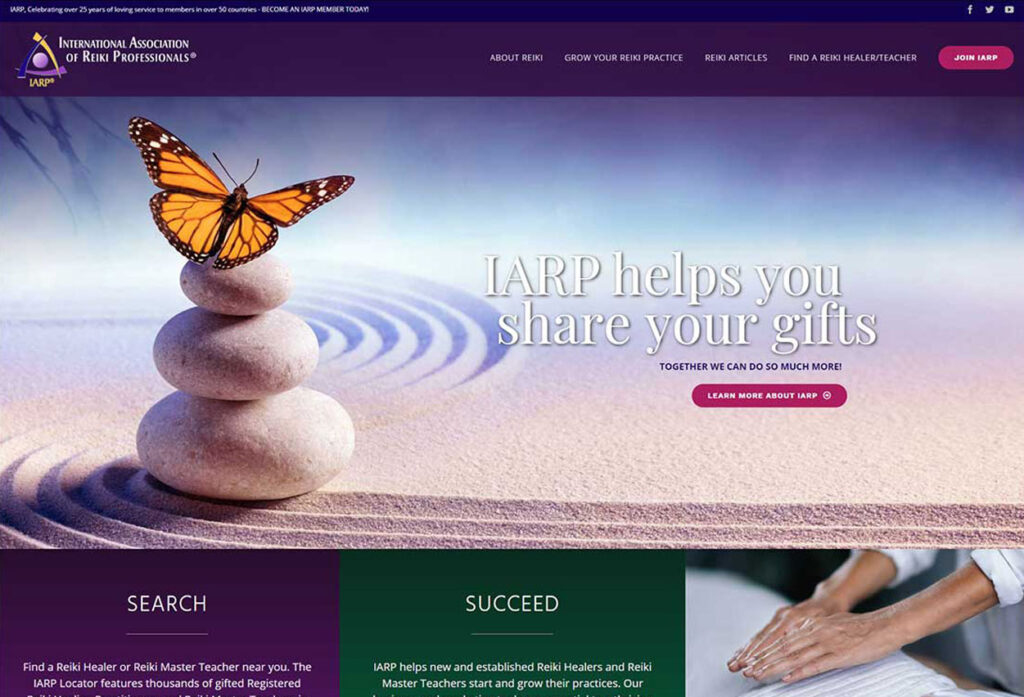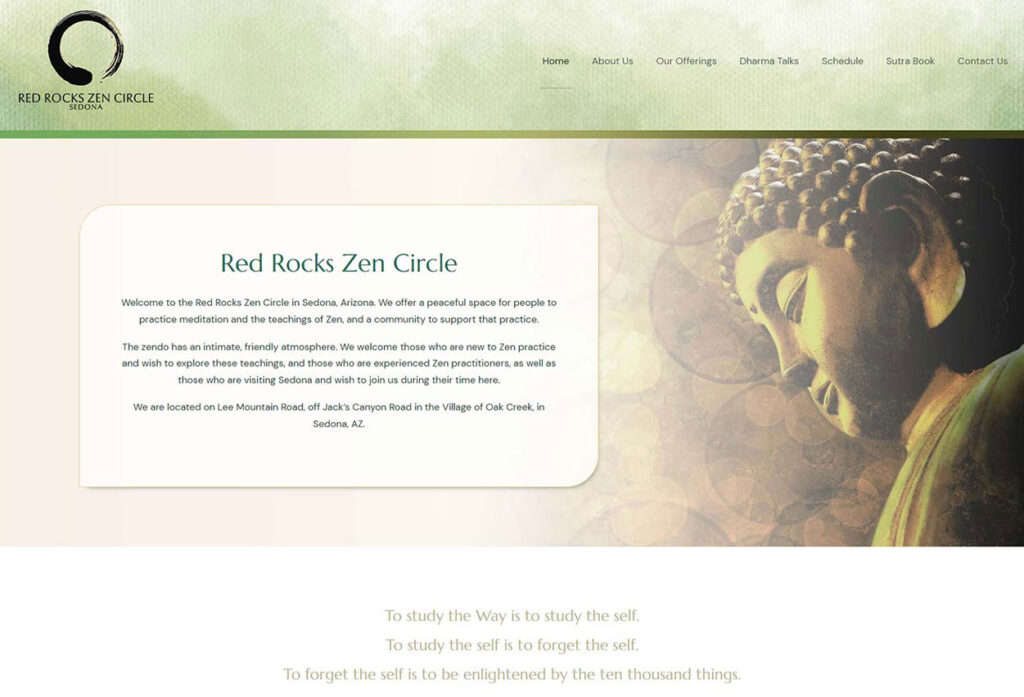Get ADA Compliant
Americans with Disabilities Act
Open up your website to everyone... because it's the right thing to do.
Charlotte Howard Web Design uses an Intelligent Accessibility Compliance System that transforms regular websites into fully-compliant ADA websites. We implement the highest industry standards and practices with our Artificial Intelligence-based Remediation System. We assess your website and provide a complete solution. The result is the lowest up-front cost and the most permanent accessibility remediation possible. But how do you know if your site is ADA-compliant? The answer is to schedule a consultation and hire us to get the job done.
About Web Accessibility
Web accessibility is essentially a set of rules, behaviors, code standards, and design guidelines that were created by the W3C and are called the WCAG 2.1.
The WCAG 2.1 is a massive 1,000-page guidebook that encapsulates a range of disabilities that go from hindering internet use to making internet use impossible without adjustments. This spectrum actually comprises 20-25% of the general population depending on if we're going with the CDC or WHO.
There are many disabilities covered, but the primary categories that require attention are:
- Blind people using screen-readers
- The motor-impaired using only the keyboard to navigate
- Epilepsy
- Visual impairments and color-blindness
- Cognitive and learning disabilities
4.9% of U.S. adults have a vision disability with blindness or serious difficulty seeing even when wearing glasses, requiring screen readers.
10.8% of people with a disability have a cognition disability with serious difficulty concentrating, remembering, or making decisions.
Does the ADA Apply to Small Businesses?
It might come as a surprise, but yes, even small businesses are required to comply with the ADA. According to ADA Title III, every business, no matter how big or small, has to be accessible for people with disabilities.
Disability rights activists, legal scholars, and court rulings have agreed that online websites are covered by ADA Title III. Furthermore, in 2018 the Department of Justice specifically stated that websites are considered places of public accommodations, despite the ADA not mentioning websites specifically.
Therefore, ADA Title III applies both to physical access, like permitting service animals to enter the premises, and digital access, like including subtitles on videos and ensuring websites support accessibility technology.
3 Reasons Why Your Website Should be ADA-Compliant
Why is web accessibility so important?
1. Protect Your Business from Lawsuits
You have enough to deal with when running a small business without needing to worry that you might be sued or fined for ADA non-compliance.
And the risk of an ADA lawsuit is real. Since 2018, the number of websites to receive a lawyer letter about web accessibility rose almost 300%, and since the pandemic began, web-accessibility lawsuits jumped even higher. In 2020, the number of web-accessibility lawsuits in federal courts rose to 2,523, almost 300 more than 2019, and January 2021 alone saw a record 10,983 federal lawsuits filings.
It's not surprising when you remember that COVID-19 pushed people online like never before. People with disabilities are a lot more ready to take legal action on a non-accessible website when they cannot access the website freely.
Small businesses aren't small enough to fly under the radar, either. All it takes is one person with disabilities to find your site frustrating and unwelcoming for them to send you a legal letter demanding that you fix the site, and possibly requesting damages as well.
2. Web Accessibility Helps Grow Traffic and Sales
Building web accessibility into your business also helps your business succeed by attracting more visitors and driving more sales.
Improve SEO to Increase Potential Traffic:
Web accessibility is great for SEO, which helps your website rank higher on search engine results pages and gain more organic traffic. Web accessibility tweaks like descriptive alt-tags and anchor tags for links give you the chance to add more meaningful keywords.Google also penalizes sites that are too difficult to navigate, plus it pays attention to your bounce rate. Your bounce rate shows how long people spend on your site before they bounce off to go elsewhere. If your site isn't accessible, many people with disabilities will leave it quickly, dragging down your bounce rate.
Improve Reputation to Drive More Sales:
Word of mouth is still the most powerful type of marketing, especially now that social media helps spread the word of mouth recommendations to millions.People with disabilities who land on your site and find that it's inaccessible, confusing, or totally closed to them aren't going to be shy about warning other people to avoid it. On the other hand, if your site is a delight for people with disabilities, they'll recommend it strongly to their friends and relatives and help boost your traffic even further.
Offer a Positive Experience to All Your Customers:
A fully accessible site is a pleasure for everyone to use, not just for people with disabilities. When you build your site from the very beginning with web accessibility in mind, you'll end up with a site that's simple to navigate, one that has an intuitive purchase journey that encourages more visitors to convert into customers.When your site is accessible it means your products are easy to find, your content is clearly understandable, and your checkout process doesn't throw up obstacles that might lead someone to abandon their cart. It's a win-win situation.
3. Web Accessibility is the Right Thing To Do
Finally, your conscience should push you to offer an equal opportunity for people with disabilities. In the US alone, 61 million people live with a disability, including two out of every five adults aged over 65, and there are over one billion people with disabilities worldwide.
These people also need to be able to carry out activities online, like ordering groceries and medications, buying shoes and clothes, and comparing prices and features for services such as mobile hairdressing, garden care, or physical therapy. If your site isn't accessible, it's like you're locking them away from the rest of the world.
How We Can Help
We offer a straightforward, business-friendly, and cost-effective way to get a fully accessible website. Our system scans your site to identify accessibility issues, and then it automatically remediates them.
- Avoid fines and lawsuits
- Increase traffic to your website
- Enjoy opening up your website and business to EVERYONE, including people with disabilities
- Grow your business with new leads, clients, and sales
- Get peace-of-mind knowing that our system is taking care of all the programming details for you, automatically
We look forward to hearing from you!
Resources:
How Web Accessibility Improves SEO and Increases Website Traffic
How Small Businesses are Targeted with Abusive ADA Lawsuits
Plaintiffs Set a New Record for Website Accessibility Lawsuit Filings in 2022
Businesses ‘sitting ducks’ for lawsuits because websites aren’t ADA compliant
Lawsuits targeting business websites over ADA violations are on the rise
Tax credit available to small businesses for making websites ADA-compliant










